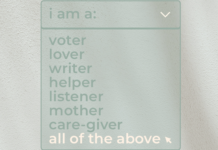“Speak up,” adults tell their children. From an early age, we’re taught the importance of saying what we think loudly and clearly. The lesson is, if you want to make a point, your voice needs to be heard.
Less focused upon and arguably far more important is learning how to listen….really listen.
Genuine listeners have a quite power and charisma. People gravitate towards them. As Dr. Karl Menninger observed:
Listening is a magnetic thing, a strange and creative force. The people who listen to us are the ones we move toward. When we are listened to, it makes us unfold and expand.
New research highlights why being a good listener may be more advantageous than being a smooth talker. According to a recent study, good listening skills have a bigger impact on influencing others than verbal communication. In other words, if you want to persuade someone of something, say less and listen more.
Here are four ways to hone your listening skills:
Active Listening
Paraphrase, clarify and offer feedback on what your conversation partner just said to you. And that doesn’t mean “uh-huh” or “yeah” or “I get it,” which are code for “I wasn’t totally listening.” The key to active listening it to let the other person know you’re engaged. Paraphrasing let’s them know you’re absorbing what they’re saying. Asking for clarification offers them an opportunity to get their message across as clearly as possible. And non-judgmental feedback shows them you care.
Empathetic Listening
Listening is more than just registering words. Search for the other person’s thoughts and feelings, the subtext, to truly understand what they’re saying.
Open Communication
Try to not interrupt the other person and let them finish each and every statement. If it’s required, let yourself be vulnerable to the other person’s message. It will ensure the conversation is one that’s open, honest and productive.
Total Listening
Consistent eye contact and positive body language sends the message that you’re really hearing them. Staying away from distractions and keeping distractions away — your vibrating cellphone, the TV flickering across the other room, the bit of lint you noticed on your sweater — let’s them know that what they’re saying is important to you, you’re engrossed and you care.
A recent Harvard Business Review article sums it up best:
While many of us have thought of being a good listener being like a sponge that accurately absorbs what the other person is saying, instead, what these findings show is that good listeners are like trampolines. They are someone you can bounce ideas off of — and rather than absorbing your ideas and energy, they amplify, energize, and clarify your thinking. They make you feel better not merely passively absorbing, but by actively supporting. This lets you gain energy and height, just like someone jumping on a trampoline.
Bounce Away.
I wish you all the best,
Dr. Samantha Boardman






